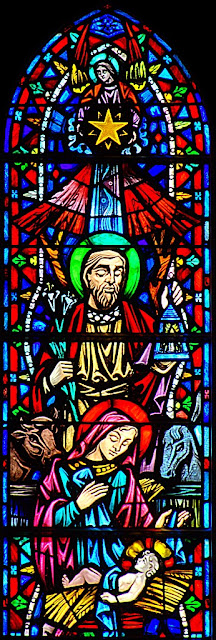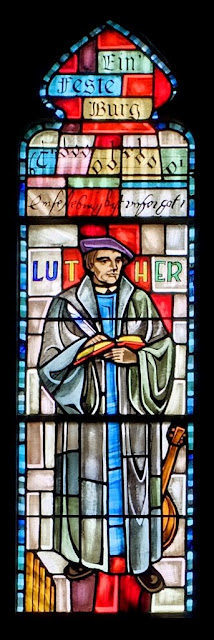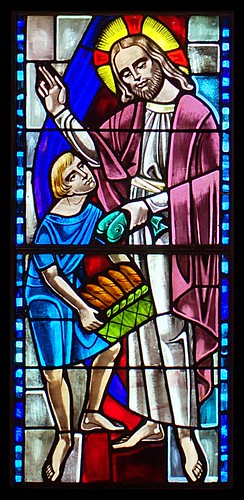 |
| Jesus is the Good Samaritan who rescued the man considered His "enemy" |
Jesus warns us to beware of those who love worldly honor. Yet, who doesn’t love worldly honor? We all want people to like us and admire us. But the world doesn’t always treasure what God considers righteousness, and even when it does, those who seek praise make a pretense of righteousness and the public can be fooled.
St. John writes, “Do not love the world or anything in the world. If anyone loves the world, the love of the Father is not in him. For everything in the world – the cravings of sinful man, the lust of his eyes and the boasting of what he has and does – comes not from the Father but from the world. The world and its desires pass away, but the man who does the will of God lives forever.” (1 John 2:15-17) People are sinful and their desires are sinful. Worldly people will seek to corrupt you (if they haven’t already) in order that you will be more willing to go along with their sinful desires. At the very best, if you seek the world’s favor, they will only give it to you as long as they can get something in return. When you have nothing more to give, then the world will abandon you. There is no salvation in seeking the world’s favor and praise.
That is why James (4:4) writes, “Do you not know that friendship with the world is enmity with God? Therefore whoever wishes to be a friend of the world makes himself an enemy of God.” But understand that it is not as if God feels slighted or offended because you prefer someone else to Him. God loves you and wants you to be saved from your sins. If you seek other gods you are rejecting your only hope of salvation and will be lost.
 |
| Though the devil offered Jesus the riches of the world, He would not be diverted from His saving work |
It is only a sin if you have the wrong attitude when making your offering, such as using your wealth to buy influence and control in the church. You might say, “I paid my dues, now I get to say how things are run around here.” That attitude forgets that neither the church nor your wealth belong to you – they belong to God. It is also a sin if you think your gift gets you closer to God, or makes God see you more favorably. God’s favor cannot be bought by giving to Him what belongs to Him anyway. Do you really think God will be impressed? Repent of this.
On the other hand, it is also a sin if you give all you have to the church and have nothing left for your family. It is a service to God to provide for the needs of your family. Though this, too, can be taken too far if you use your family as an excuse to get out of your obligations to the church. If you spoil your children by giving them every wicked thing they ask for, while the church is in decay and the staff is underpaid. That does no one any good – neither the church, nor your children.
Yet, instead of rebuking others for one reason or another, Jesus notices this one poor widow who put two pennies into the offering. Those who loved worldly honor and praise hardly noticed this poor widow. She could do nothing for them. Others probably didn’t take much notice of her either, but Jesus did.
Neither Mark, nor Jesus, give us her life story except to note that she is a widow, and, as such, she probably had no one to care for except herself. She apparently had no possessions to her name except those two pennies. In a way it would have made little difference to her if she spent those pennies on herself or gave it to the church. She might have been able to buy a meager amount of food for a small meal, but then she would soon have nothing again. Yet, she wanted to give her money to support the church.
 |
| God often provides more than we need in order that we may share with others in need |
God did see her and I trust that He gave her all she needed. She might never have gotten rich, but God certainly provided for her needs. We all would do well to emulate the faith of this woman.
I’m sure many sermons have been preached on this topic that said, “Be like her or else. Amen.” But if I stopped here I would be doing you a great disservice. If the only thing you get out of this Bible story is that you should strive to be like the poor widow, then you are likely to be condemned by that message. If the lesson you take away from this is to try to emulate the widow because her actions are somehow more holy – then that would only lead you to become like the scribes who do their good works to receive something in return.
You are most likely not like the widow in her faithfulness, but take heart – she wasn’t like that either. Well, she was, but not perfectly – not her whole life. It might have taken her losing husband and children and all her possessions for her to learn to trust in God enough to give her last two pennies in faith. She surely had many failures and sins along the way, as have you. But she wasn’t saved by her faith, nor by the large percentage of her meager possessions given to God on this one particular day. She was saved by Jesus.
You are not saved from sin and death by what you do. After you are dead, what can you do to bring yourself back to life? You can only be saved by Jesus. But then, in showing this poor widow’s offering, Jesus is teaching about what He, Himself, has done for you – not about what you should do for Him.
What made the widow special was that she gave everything she had out of love for Christ and His salvation. Now, it could have been made easier by the fact that her entire estate only included two pennies (mites), but most sinners would still put their trust in those two pennies to save them until they were gone, and then they might look to God out of desperation. Though even then, some people still would not look to God to save them even if they had nothing else to put their trust in. Jesus taught that it is easier for a camel to go through the eye of a needle than for a rich man to enter the kingdom of God. Though even poor people can make an idol out of what little they have – even two pennies. Yet, this woman’s offering didn’t save her. It wasn’t even her love and trust that saved her. If that was all she had, then it would surely be a case of: “too little – too late.” What saved her was Jesus.
 |
| Though Christ was rich, for your sake he became poor so that by His poverty, you may become rich. |
It is because Jesus has done this that you can have the same love for God that the poor widow did in Mark 12. It is also because Jesus has done this for you that whenever you realize you frequently fall short of this ideal of faith and obedience, that you can turn to Christ in repentance and trust that He will forgive you all your sins and provide for all your needs. Since Christ has given all He had to rescue you from your sin and redeem you to be His children, you can be sure He will provide for all your needs – and then some. You may be rich, or you may never be rich, but in Christ you have the inheritance of God’s heavenly kingdom, which is worth far more than all the riches of the world.
Do not put your trust in yourself or in your riches or in your goodness. All these things will pass away, and none of them can save you. Put your trust in Jesus, who, though He was rich, became poor, so that through His poverty you might become rich. (2 Corinthians 8:9) Jesus has done everything necessary to save you from your sins and give you everlasting life. Trust in Jesus to save you. Let everything else go – it is all temporary anyway. Jesus, and His salvation is forever, and it is a sure thing. Jesus has paid for it all and has given it to you as a gift. Rejoice! Christ is your salvation.


























